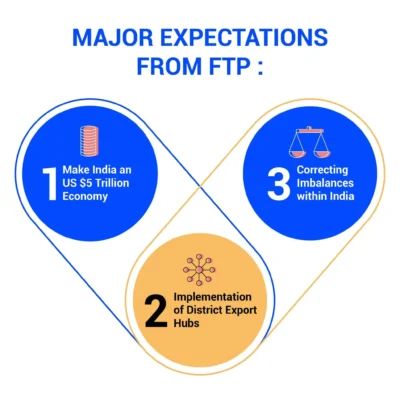Pakistan’s Prime Minister has voiced serious concerns regarding the country’s water security, as tensions surrounding the Indus Waters Treaty with India continue to escalate. The treaty, a crucial agreement for water sharing, is facing increasing strain, raising fears of a potential water crisis within Pakistan. The following sections will delve into the various facets of this escalating situation, highlighting the potential consequences for the nation.
Table Of Content
- Pakistan PM Warns of Water Crisis Amid Indus Tensions
- Indus Water Treaty Dispute Fuels Pakistan’s Concerns
- Escalating Indus Row: Pakistan Faces Potential Water Scarcity
- Water War Fears Rise as Pakistan Reacts to Treaty Threat
- Indus Waters: Pakistan’s PM Expresses Deep Alertness
- Pakistan’s Water Security Threatened by Treaty Impasse
- Indus Dispute Intensifies: Pakistan’s Water Woes Mount
- Treaty Tensions Heighten Pakistan’s Water Crisis Risk
Pakistan PM Warns of Water Crisis Amid Indus Tensions
Pakistan’s Prime Minister has publicly cautioned about the looming threat of a water crisis, directly linking it to the ongoing disputes surrounding the Indus Waters Treaty. The PM emphasized the treaty’s importance to Pakistan’s water supply, particularly for agriculture and domestic consumption, and warned that any disruption could have severe consequences for the country’s economy and population. The statement underscores the government’s growing anxiety over the future of water resources.
Indus Water Treaty Dispute Fuels Pakistan’s Concerns
The core of Pakistan’s concerns lies in the ongoing dispute over the Indus Waters Treaty, a 1960 agreement brokered by the World Bank. Pakistan alleges that India’s construction of certain hydroelectric projects on the western rivers of the Indus basin violates the treaty’s provisions, potentially reducing the flow of water into Pakistan. These concerns have been repeatedly raised by Pakistani officials, highlighting the importance of the treaty for the nation’s water security.
Escalating Indus Row: Pakistan Faces Potential Water Scarcity
As the Indus River dispute intensifies, Pakistan is confronting the very real possibility of increased water scarcity. Any reduction in the Indus River’s flow would disproportionately affect Pakistan’s agricultural sector, which relies heavily on irrigation. This could lead to decreased crop yields, food insecurity, and economic hardship for millions of Pakistanis who depend on agriculture for their livelihoods.
Water War Fears Rise as Pakistan Reacts to Treaty Threat
The escalating tensions surrounding the Indus Waters Treaty have ignited fears of a potential "water war" between the two nations. While outright conflict is unlikely, the rhetoric surrounding the dispute has become increasingly heated, with some voices in Pakistan suggesting that India is using water as a tool of coercion. This heightened tension further complicates the already delicate relationship between the two countries.
Indus Waters: Pakistan’s PM Expresses Deep Alertness
The Prime Minister’s expression of "deep alertness" reflects the gravity of the situation as perceived by the Pakistani government. This level of concern suggests that the government is actively monitoring the situation and considering various strategies to mitigate the potential impact of any disruption to the Indus River’s flow. It also signals a willingness to engage in diplomatic efforts to resolve the dispute.
Pakistan’s Water Security Threatened by Treaty Impasse
The current impasse over the Indus Waters Treaty directly threatens Pakistan’s long-term water security. The treaty is not just a legal agreement; it is a lifeline for Pakistan’s economy and its people. A breakdown in the treaty’s implementation or a unilateral violation by either party could have devastating consequences for Pakistan’s water resources and overall stability.
Indus Dispute Intensifies: Pakistan’s Water Woes Mount
As the Indus dispute continues to escalate, Pakistan’s water woes are steadily mounting. The country already faces significant challenges related to water management, including inefficient irrigation practices, aging infrastructure, and the impacts of climate change. The added pressure from the Indus River dispute is exacerbating these existing problems and pushing Pakistan closer to a potential water crisis.
Treaty Tensions Heighten Pakistan’s Water Crisis Risk
The heightened tensions surrounding the Indus Waters Treaty are significantly increasing the risk of a full-blown water crisis in Pakistan. Without a peaceful resolution to the dispute and a renewed commitment to the treaty’s principles, Pakistan faces the prospect of reduced water availability, increased food insecurity, and potential social unrest. The stakes are high, and the need for a diplomatic solution is urgent.
The situation surrounding the Indus Waters Treaty presents a significant challenge to Pakistan’s water security and overall stability. The Prime Minister’s warnings and expressions of concern highlight the gravity of the situation. A peaceful and equitable resolution to the dispute is crucial to prevent a potential water crisis and ensure the long-term well-being of the Pakistani people. The international community may need to play a more active role in facilitating dialogue and ensuring the treaty’s continued adherence.








No Comment! Be the first one.